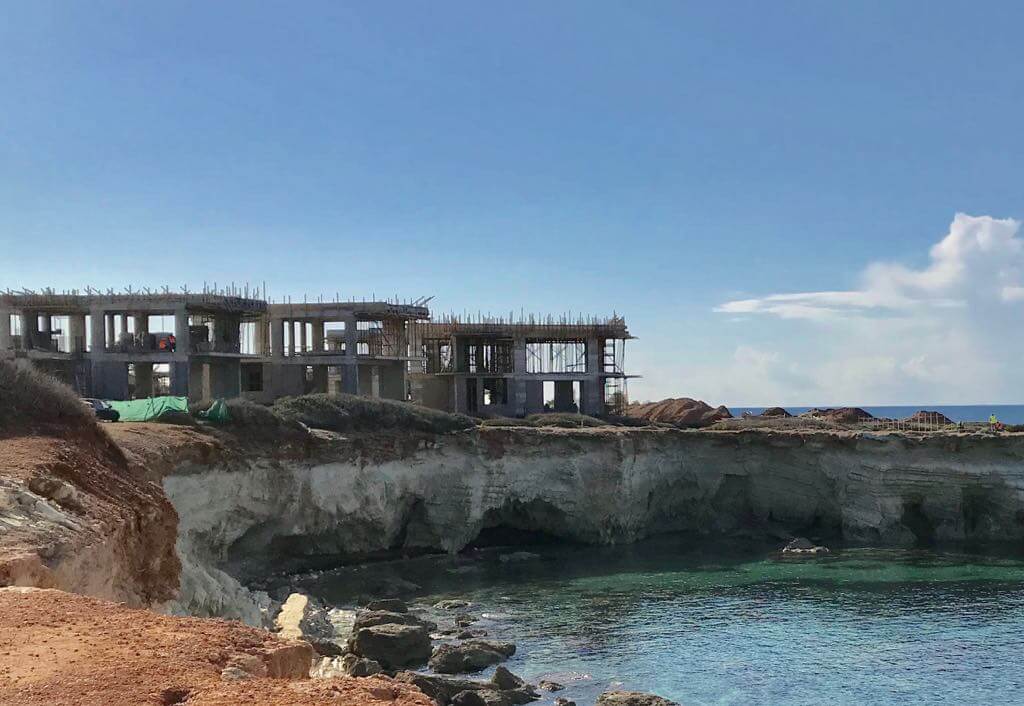
Newsroom
An internationally-renowned expert is coming to Cyprus to assist the government in conducting a study on the sea caves controversy in Paphos distrcit, just weeks after the Green Party filed an official complaint with the EU Commission.
The issue dominated the headlines earlier this year and sparked massive protests, following a public outcry against the construction of six villas in Peyia, near sea caves which are a birthing spot for the endangered Mediterranean monk seal.
Environmental groups and NGO’s raised their voices against any construction in the area, which is within the Natura 2000 protected area. Only a few hundred monk seals are left in the world, and Cyprus sea caves are one of the few remaining mating habitats.

The controversy was fuelled further when construction was moving at a very quick pace and after reports emerged that zoning laws had been changed to allow for the specific development. Activists have described the project and new zoning as a direct violation of environmental laws.
Agriculture Minister Costas Kadis, who was serving as education minister at the peak of the debate, recently stated that a comprehensive study of the area will be conducted in order to point out the “right path” on this issue, according to Stockwatch.
“We will bring the best scientists and I hope we can strike a perfect balance"
“We will bring the best scientists and I hope we can strike a perfect balance for the development of the area, so that society and organised groups can feel that we are moving in the right direction,” Kadis said.
But Green Party MP Giorgos Perdikis is not taking any chances.
Perdikis last month sent an official inquiry to Karmenu Vella, the European Commissioner for Environment, Maritime Affairs and Fisheries, briefing her on the matter and letting her know how Cypriot society is deeply involved with this issue.
The Green MP reportedly condemned the actions of the government in seeking ways to develop the area near the Peyeia sea caves and has asked Vella to examine whether these actions comply with the laws of the European Union.
































